News
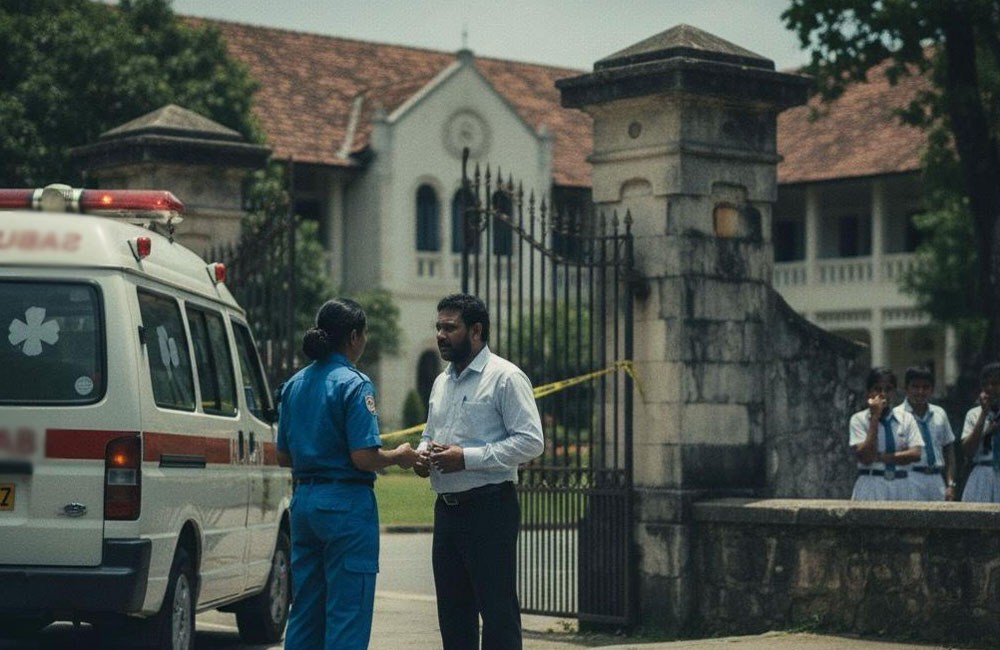
A/L Student Hospitalized After Jumping from School Building in Bambalapitiya
A 19-year-old Advanced Level student was hospitalized this afternoon after reportedly jumping from the third floor of her school building in Bambalapitiya, police said.
The student, a resident of Moratuwa, was sitting for the A/L examination for the second time this year. The incident occurred around 15 minutes before the Biology paper was scheduled to begin.
According to eyewitnesses, the girl’s life was saved as she landed on a carpeted pathway, sustaining injuries mainly to her legs. She was immediately rushed to hospital for treatment.
Initial police investigations have revealed that the student had been experiencing fear and stress related to the examination. Statements obtained from her family members confirmed that she had shown signs of anxiety before the incident.
Police are conducting further inquiries into the matter.
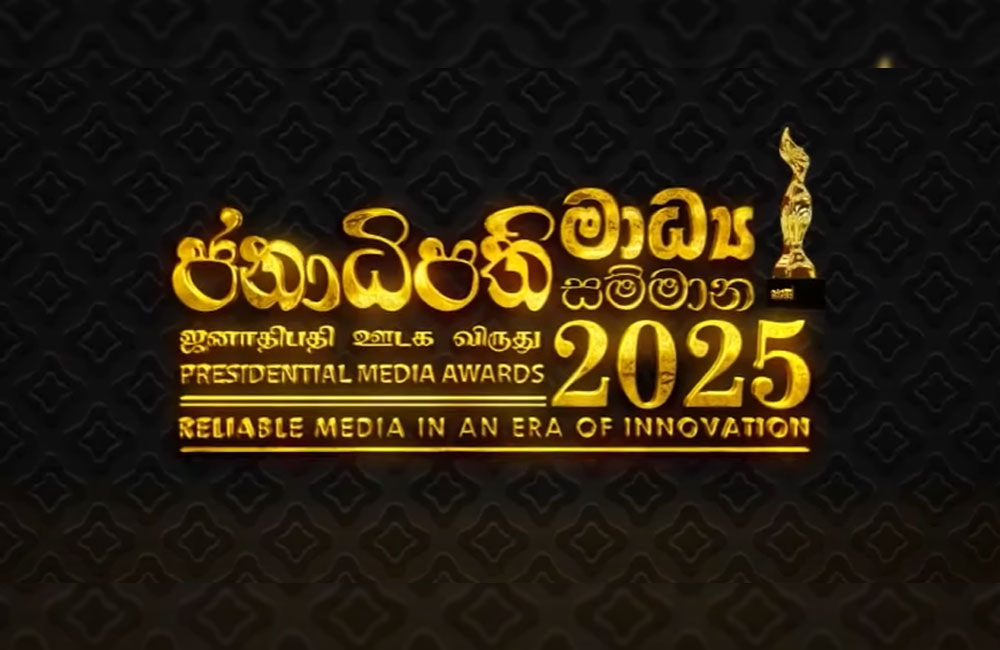
Presidential media awards 2025 to honor journalists today
The “Presidential Media Awards – 2025” will be held today at 3.00 pm at the Pokuna Theatre, under the patronage of Prime Minister Dr. Harini Amarasuriya, to recognize journalists for their contributions to a credible and responsible media.
The awards aim to celebrate the talents, skills, and exceptional work of journalists in promoting socially responsible media practices.
Awards will be presented across categories including television, radio, newspapers, web media, media research, and school media units.
In addition, the prestigious “Madhyabhimani” awards along with cash prizes will be conferred on six experts in the media field in appreciation of their honest and dedicated contributions to the sector.
The ceremony is organized by the Ministry of Health and Mass Media and highlights the government’s commitment to encouraging excellence in journalism.
(source - Dailymirror)
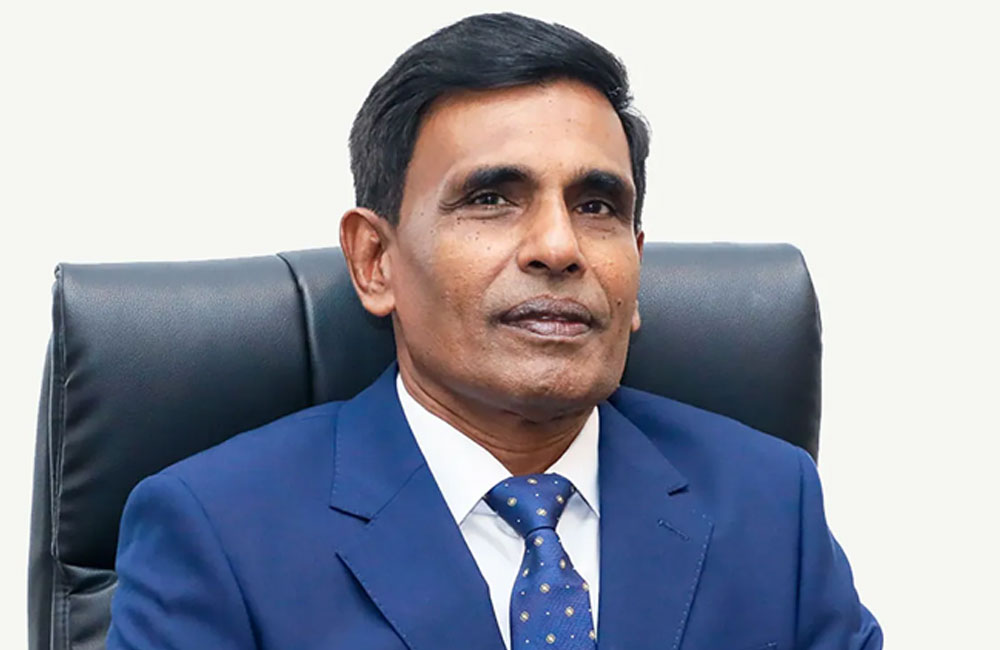
No Threat to Sri Lanka from Blasts in India and Pakistan – Minister Wijepala
Public Security Minister Ananda Wijepala says there is no security threat to Sri Lanka following the recent explosions reported in India and Pakistan.
He assured that the country’s security situation remains stable thanks to the active vigilance of intelligence agencies and the alertness of the tri-forces and police.
“No information has been revealed about any such threat. Our intelligence units are active, and national security is well under control,” Minister Wijepala stated.
Commenting on reports about underworld figures allegedly planning to return to Sri Lanka, the Minister clarified that his remarks were misinterpreted.
“I did not say that. I only mentioned that some drug traffickers have expressed their desire to give up the trade. If they wish to change that path, it’s a positive step,” he added.

Suspect Who Raped and Impregnated Underage Girl Arrested After a Year
Suspect Arrested After Year-Long Manhunt for Raping and Impregnating Minor in Badulla
A 25-year-old man who had allegedly raped and impregnated an underage girl before fleeing the area has been arrested after evading capture for more than a year. The arrest was made by the Monaragala Division Crime Investigation Unit yesterday.
Police said the suspect, a resident of Amunuwelapitiya in Badulla, had gone into hiding after the victim became pregnant and had been working at a livestock farm in Guruthalawa during his time on the run.
Investigations into the case began on August 22, 2024, following a complaint lodged by the victim.
The suspect was handed over to the Wellawaya Police for further investigations and was expected to be produced before the Wellawaya Magistrate’s Court yesterday.

Six Arrested in Kirinda with 300kg of Narcotics
In a joint operation conducted by the Western Province North Crimes Range and the Southern Province Police, six individuals have been taken into custody in Kirinda for the possession of approximately 300 kilograms of narcotic substances, police confirmed.
According to police sources, the suspects were apprehended following a coordinated raid based on intelligence information. The seized drugs are currently being analyzed, while further investigations are underway to determine the source and intended destination of the narcotics.

Sri Lanka’s Reserve Resilience Tested by Soaring Imports and Outflows
By September 2025, reserves were reported at roughly US$ 6.24 billion, up slightly from US$ 6.11 billion in August.
However, these levels equate to only about 3.4 months of import cover at the start of the year, leaving Sri Lanka with minimal buffer against external shocks.
At the same time, the latest trade data highlight escalating pressure from imports. In September 2025, imports climbed to roughly US$ 2.048 billion, a sharp increase from August, while exports reached only about US$ 1.139 billion, resulting in a trade deficit of more than US$ 900 million.
For the seven-months to July 2024, import expenditure rose by 9.1 % year-on-year, while export earnings increased only by 5.6 % illustrating the widening gap that siphons precious dollars out of the system.
The policy challenge is stark. Sri Lanka must steadily rebuild its foreign-reserve stock while foreign-currency outflows keep mounting, driven by higher raw-material bills, intermediate parts, fuel imports, and renewed private-sector credit that increases import financing.
According to the Central Bank of Sri Lanka (CBSL), import expenditure in December 2024 reached its highest monthly level of the year and continued to widen the merchandise trade deficit.
Compounding this, reserve print-ups in late 2024 were partly supported by currency-swap facilities and unsterilised foreign-exchange purchases. Analyses suggest the reserve figures may be overstated by about US$ 1.4 billion due to inclusion of a RMB 10 billion China swap that does not fully satisfy international reserve-asset criteria.
For policymakers, the task is two-fold: boost foreign-currency earning capacity through tourism, remittances and services exports and strictly manage foreign-currency outflows by limiting non-essential imports and financing. Meanwhile, the CBSL must continue prudent reserve-management practices and ensure transparency in reserve reporting.
If successful, Sri Lanka may inch toward its target of US$ 7 billion in reserves by end-2025, as flagged by Governor Nandalal Weerasinghe, thereby improving import cover and external resilience.
But failure to arrest the import-led out-flows and structural earnings short‐fall could re-expose the economy to reserve shocks, currency volatility and external debt servicing risk.
In sum, while the story of recovery is real, the resilience of Sri Lanka’s external-sector architecture remains precarious. Stronger foreign-income flows, tighter import management, and transparent reserve accounting will be essential if the island nation is to turn the buffer it has into a genuine safeguard.

Court Approves Release of BYD Vehicles Held by Customs
Sri Lanka Customs has agreed to release a consignment of BYD electric vehicles that had been under detention, following an agreement reached in court today (November 11).
The decision came during the hearing of a petition filed by the importing company before the Court of Appeal. Additional Solicitor General Sumathi Dharmawardena, appearing for Sri Lanka Customs, informed the court that the institution had agreed to release 625 vehicles under several models — including BYD ATTO Premium (70 kW), ATTO Dynamic (45 kW), ATTO Premium (45 kW), and Dolphin Dynamic (70 kW) — upon submission of bank and company guarantees.
The proposal made by Customs received the consent of President’s Counsel Farsana Jamil, representing the petitioner.
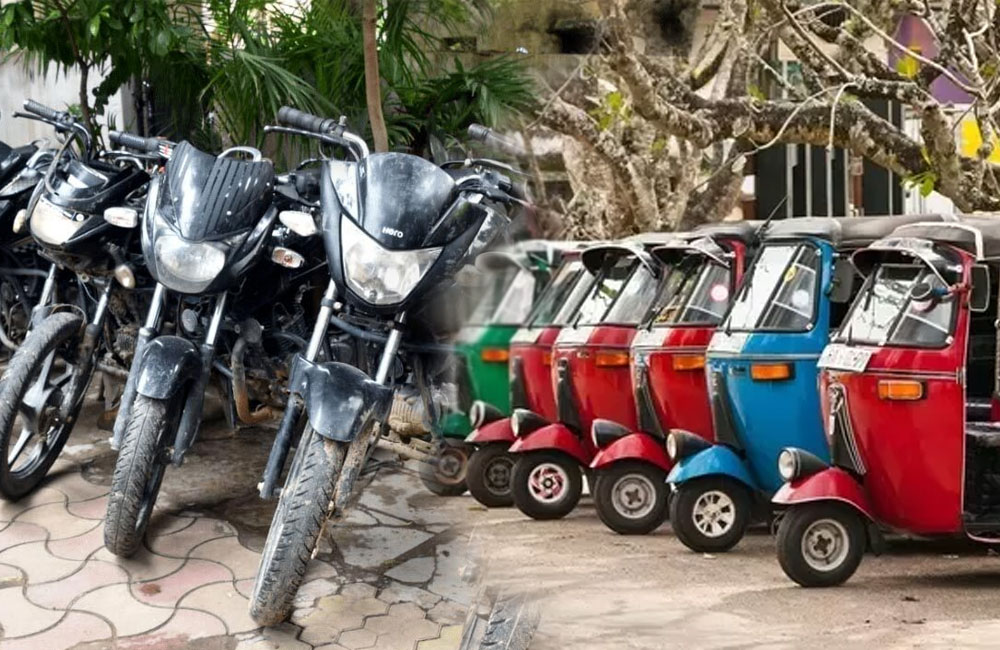
Increase in motorcycle and three-wheeler robberies in Western Province
Police say there has been a noticeable rise in motorcycle and three-wheeler robberies in Colombo city and across the Western Province.
Police noted that over the past few days, a large number of complaints have been received regarding the theft of motorcycles and three-wheelers parked along public roads.
Within the past two days, 10 motorcycles and three three-wheelers have been stolen in the Western Province, police said.
The Police Media Spokesman, Assistant Superintendent of Police (ASP) F. U. Wootler stated that special investigation teams have been deployed to conduct investigations into these incidents.
(Source : adaderana.lk)
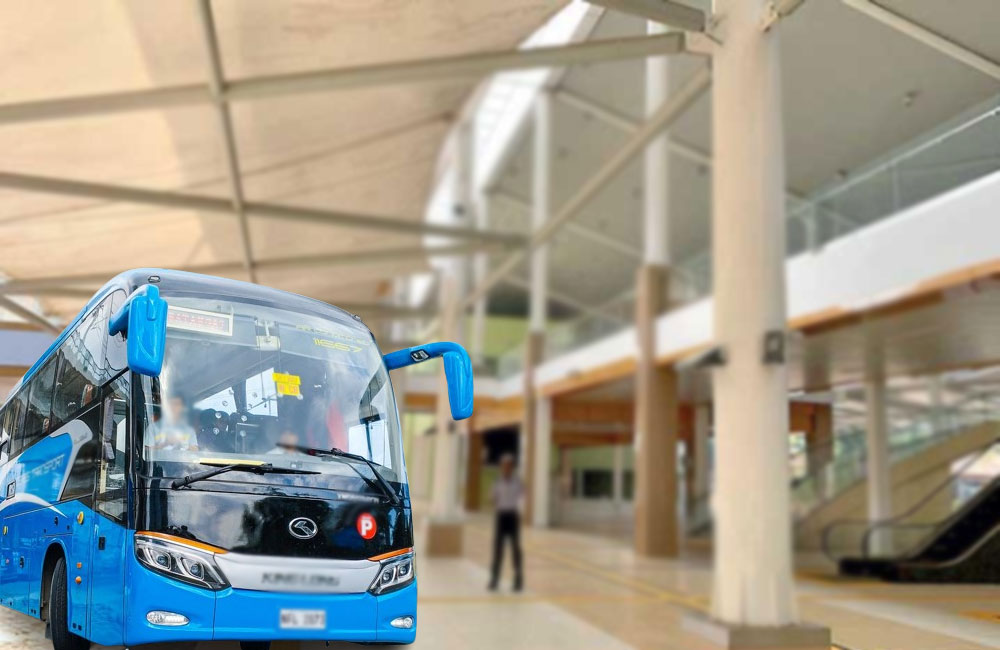
Cabinet nod to establish several multi-modal transport hubs across Sri Lanka
The Cabinet of Ministers has granted approval in principle for the proposal to develop several multi-modal transport hubs on a priority basis.
The initiative aims to improve the interconnection between various modes of public transport—including buses, trains, and taxi services—by integrating bus stands and railway stations identified as having high and growing passenger circulation, following formal feasibility studies.
As per the current national policy of the government to make public transport in Sri Lanka efficient and streamlined, the necessity of establishing multi-modal transport hubs with required facilities has been identified to enable efficient public transport services to be initiated from transit cities and main cities through the interconnection between transport modes.
Accordingly, the Cabinet of Ministers has approved, in principle, the proposal presented by the Acting Minister of Transport, Highways, and Urban Development to develop the following multi-modal transport hubs on a priority basis:
• Kandy Multimodal Transport Hub (Construction work has already been started under world bank financing)
• Anuradhapura (South) Multimodal Transport Hub (Constructions are about to be completed under the Anuradhapura combined urban development project)
• Anuradhapura (North) Multimodal Transport Hub (feasibility study has been performed and preliminary work completed)
• Multimodal Transport Hub centered around the Fort Railway Station (as proposed by the ComTrans Master Plan, which has been prepared for urban transport in Colombo and suburbs)
• Moratuwa Multimodal Transport Center (proposed by the ComTrans Master Plan)
• Ragama Multimodal Transport Center (identified through a study conducted by the Japan International Cooperation Agency)
• Avissawella, Galle, Katunayake, Kurunegala Multimodal Transport Centers (identified according to the urban plans of the Urban Development Authority)
• Gampaha Multimodal Transport Center ((identified according to the urban plans of the Urban Development Authority and railway electrification of the Colombo Suburban Railway Project)
• Katunayake Multimodal Transport Hub (identified under the Airport Development Plan)
• Kalutara Multimodal Transport Center (identified as a proposal of the District Coordination Committee)
• Kankesanthurai Multimodal Transport Center (identified according to the urban plans of the Urban Development Authority)
(Source : adaderana.lk)
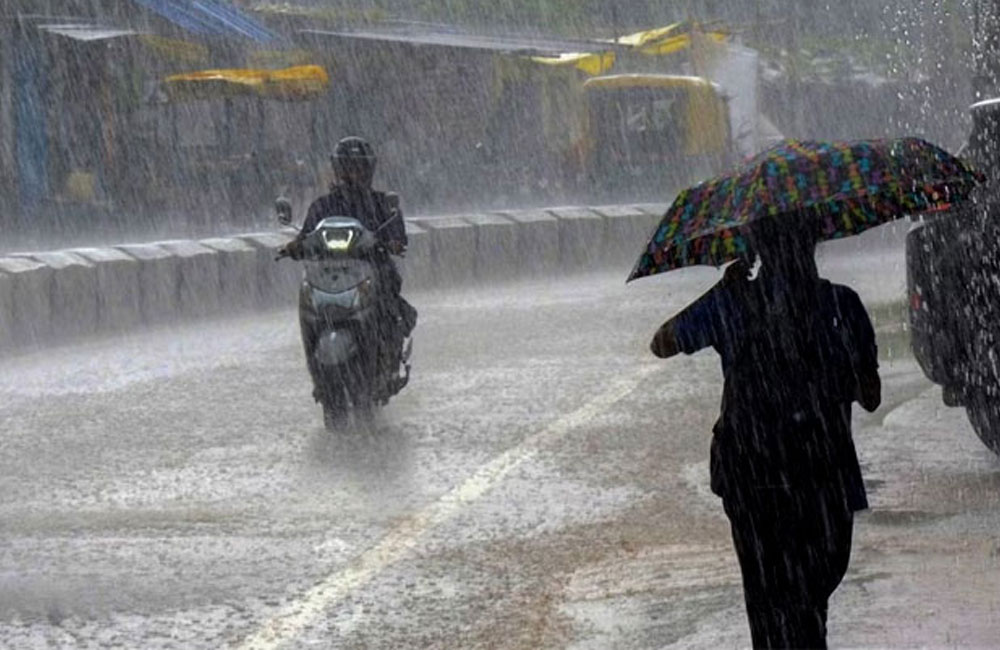
Heavy Showers Expected in Several Areas Today – Met. Department
The Department of Meteorology has announced that showers or thundershowers are expected in most parts of the island after 1.00 p.m. today (11).
According to the Department, fairly heavy rainfall exceeding 75 mm is likely in certain areas of the Uva, Southern, Sabaragamuwa, and Central Provinces, as well as in the Ampara and Batticaloa Districts.
Meanwhile, morning showers may occur in parts of the Northern Province and the Trincomalee District, the statement added.
The Met. Department further noted that misty conditions can be expected in some areas of the Western, Southern, Sabaragamuwa, Central, and Uva Provinces, and in the Ampara District during the early hours of the morning.
The public has been urged to take adequate precautions to minimize damage caused by temporary localized strong winds and lightning associated with thundershowers.

Maldives Makes Largest-Ever Drug Seizure from Sri Lankan Vessel
The Maldivian police have officially confirmed the seizure of a Sri Lankan fishing vessel carrying a massive haul of illegal narcotics within the Maldives’ maritime territory.
The vessel, identified as “Avishka Putha”, was intercepted on November 7 by the Maldives National Defence Force (MNDF) Coast Guard after it illegally entered Maldivian waters.
According to police reports, the trawler was found to be transporting over 355 kilograms of illicit drugs, marking the largest drug seizure ever recorded in the Maldives.
Authorities detained five Sri Lankan fishermen, aged 28, 34, 39, 42, and 63, who were on board the vessel. The Maldivian Police Service said further investigations are underway in coordination with Sri Lankan law enforcement agencies.
A court-authorized search conducted yesterday uncovered 58.6 kilograms of heroin and 297.3 kilograms of crystal methamphetamine (commonly known as ‘Ice’). The drugs were hidden inside 24 concealed compartments of the vessel.
The successful operation was the result of a joint investigation between the Sri Lanka Navy, Sri Lanka Police, the Maldives National Defence Force, and the Maldivian Police.
Following legal consultation with the Attorney General’s Office of Maldives, steps are now being taken to transfer the detained Sri Lankan fishermen and the seized narcotics to Sri Lanka for further legal proceedings.
A special team from Sri Lanka’s Police Cs Bureau (PNB) and the Navy has already traveled to the Maldives to assist with the investigation and coordinate with Maldivian authorities.

Sri Lanka to introduce mandatory ‘Road Fitness Certificate’ for all vehicles by 2028
The Commissioner General of Motor Transport, Kamal Amarasinghe, has announced a landmark initiative aimed at enhancing vehicle safety and environmental standards across Sri Lanka.
Under the proposed program, all vehicles operating on Sri Lankan roads will be required to obtain a Road Fitness Certificate, an internationally recognized standard already in use in many developed countries.
At present, only commercial vehicles are mandated to carry a Fitness Certificate.
However, the new policy will extend this requirement to all vehicles, including private cars and motorcycles, ensuring that every vehicle on the road meets both safety and emission standards.
As part of the initiative, the existing Emission Certificate and Fitness Certificate will be merged into a single, streamlined document — the Road Fitness Certificate — which will be issued from a centralized location to simplify the process for motorists.
Amarasinghe noted that the program is “extensive and complex,” requiring detailed study and phased implementation.
Initial groundwork is expected to begin in 2026, with the current smoke certificate system remaining valid until December 31, 2027.
The nationwide rollout of the new Road Fitness Certificate system is scheduled for completion by 2028.
Page 85 of 684